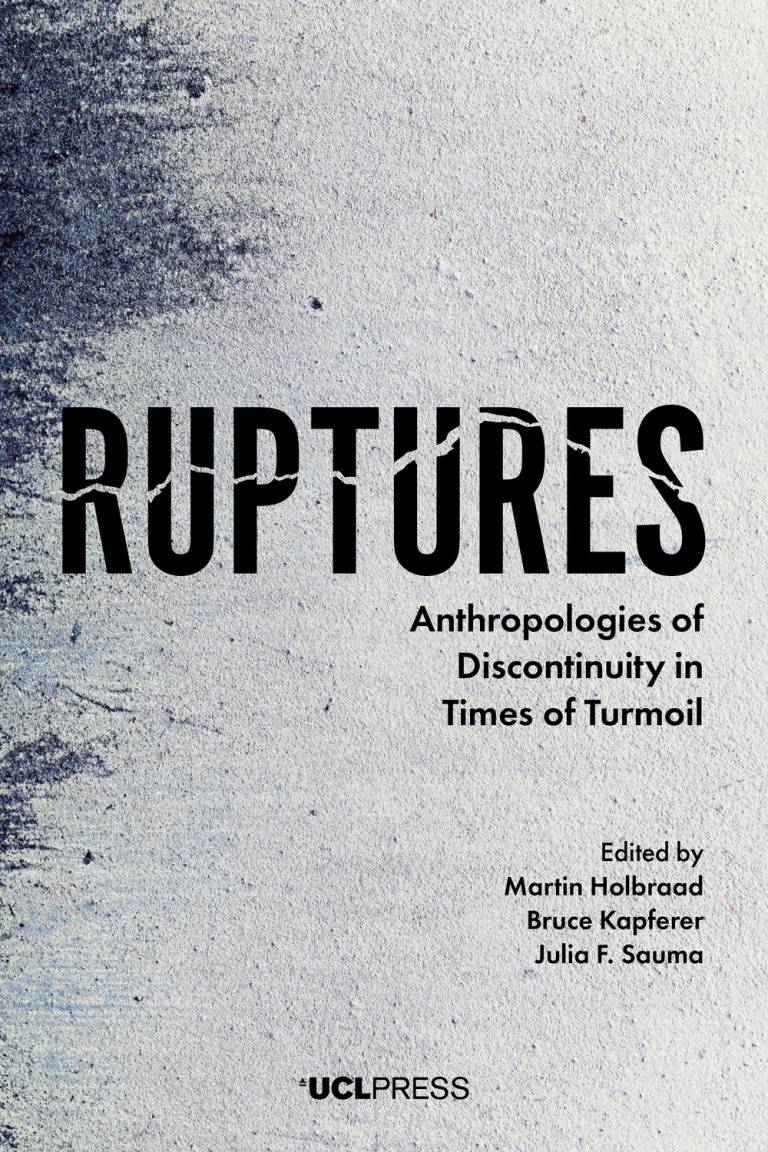Ruptures
15 July 2019
Anthropologies of Discontinuity in Times of Turmoil. Edited by Martin Holbraad, Bruce Kapferer and Julia F. Sauma.

Ruptures brings together leading and emerging international anthropologists to explore the concept of ‘rupture’. Understood as radical and often forceful forms of discontinuity, rupture is the active ingredient of the current sense of a world in turmoil, lying at the heart of some of the most defining experiences of our time: the rise of populist politics, the corollary impulse towards protest and even revolutionary change, as well as moves towards violence and terror, and the responses these moves elicit.
Rupture is addressed in selected ethnographic and historical contexts: images of the guillotine in the French revolution; reactions to Trump’s election in the USA; the motivations of young Danes who join ISIS in Syria; ‘butterfly effect’ activism among environmental anarchists in northern Europe; the experiences of political trauma and its ‘repair’ through privately sponsored museums of Mao’s revolution in China; people’s experience of the devastating 2001 earthquake in Gujarat; the ‘inner’ rupture of Protestant faith among Danish nationalist theologians; and the attempt to invent ex nihilo an alphabet for use in Christian prophetic movements in Congo and Angola.
Ruptures takes in new directions broader intellectual debates about continuity and change. In particular, by thematising rupture as a radical, sometimes violent, and even brutal form of discontinuity, it adds a sharper critical edge to contemporary discourses, both in social theory and public debate and policy.
 Close
Close

